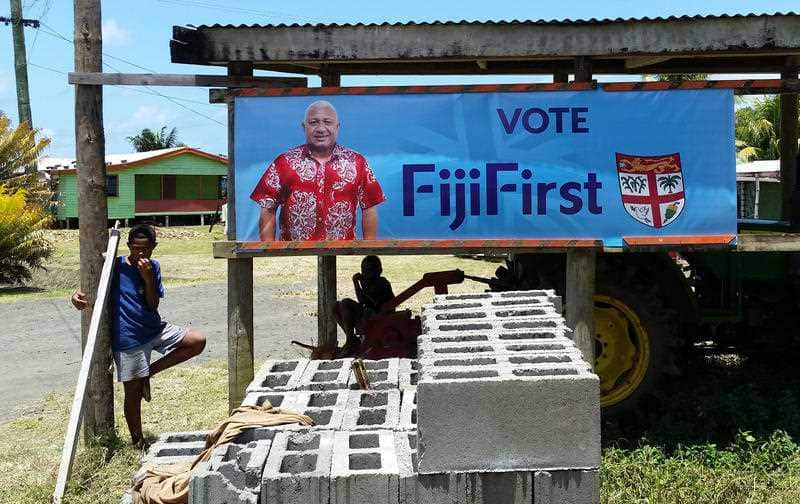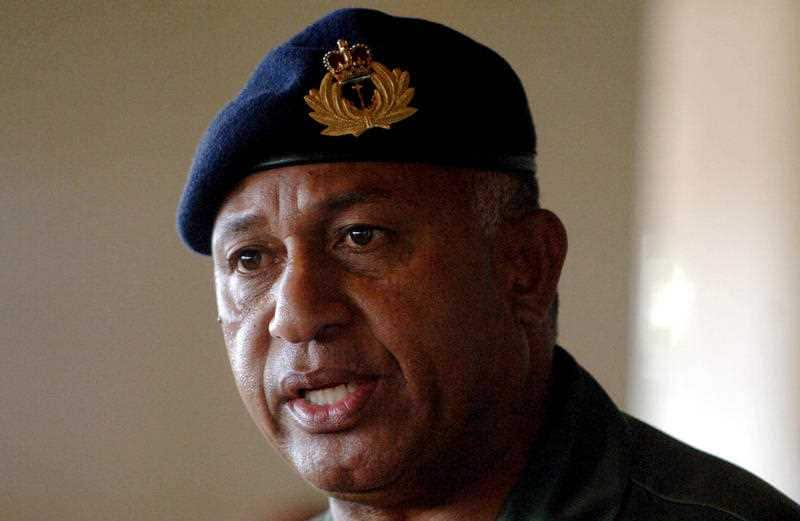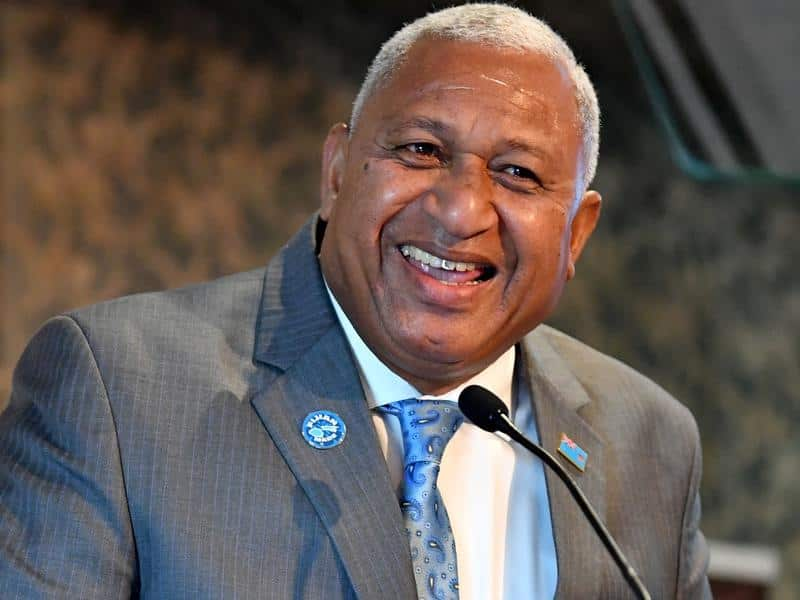Fiji's Prime Minister Frank Bainimarama has held onto power in a general election, with his party winning a razor-thin majority.
The Pacific nation this week went to the polls for only the second time since Mr Bainimarama seized control in a military coup in 2006.
A final count on Sunday put his FijiFirst party on 50.02 per cent of the total vote, with the Social Democratic Liberal Party, led by former prime minister Sitiveni Rabuka, second on 39.85 per cent. The National Federation Party received 7.38 per cent.

The outcome is expected to give FijiFirst a narrow but outright majority in the country's 51-seat parliament and Mr Bainimarama a second term, but is significantly tighter than the last election in 2014, when the party won almost 60 per cent.
Mr Bainimarama was not in Fiji to hear the final result but told Fiji Broadcasting Corporation from New Zealand, where he has been attending his brother's funeral, that he was "proud".
"I'm proud to become your prime minister once again," Mr Bainimarama told FBC News.
Opposition members are considering challenging the result, local media have reported.

In a preliminary report, a multinational observer group said it was "confident that Fijian voters were able to exercise their right to vote freely".
The report was prepared Friday before a small number to voters were allowed to cast a late ballot after torrential rain forced the closure of some polling stations on Wednesday.
It assessed the electoral processes as "transparent and credible" and that the election "was on track to reflect the will of the voters".
The Fijian Elections Office has strongly denied the claims of impropriety and rejected a call to halt counting after complaints by four party leaders they had been prevented from verifying results.
Separately, the observers noted government ministers had handed out government grants during campaigning.
With a national history of military coups and two former military strongmen running (rival Mr Rabuka himself led two coups in 1987) police earlier talked down concerns about tension after the vote.
The military - which holds significant power in the country's constitution and has given Mr Bainimarama its backing - during the run-up said it would respect the vote .
Heavy rain dampened voter numbers on election day and authorities closed dozens of polling stations early because of flooding.
Turnout in the country of more than 900,000 ranged from 53 to 61 per cent across districts, the Elections Office earlier said.
Mr Bainimarama campaigned on a continuation of strong economic growth, relative political stability and improved social services in Fiji, and was tipped as the favourite.

Critics, however, have branded the 64-year-old authoritarian.
Mr Rabuka was questioned by police the weekend before the election and was still facing legal challenges from the government only days out from the election.
Despite tourism-fuelled economic growth in recent years, poverty remains widespread in Fiji and opposition leaders had promised to raise the minimum wage. Mr Rabuka also raised concerns about large debts owed by Fiji to China.
While Fiji's government moved closer to China in response to Western sanctions following the 2006 coup, its relationship with Australia has grown significantly stronger in recent years.

